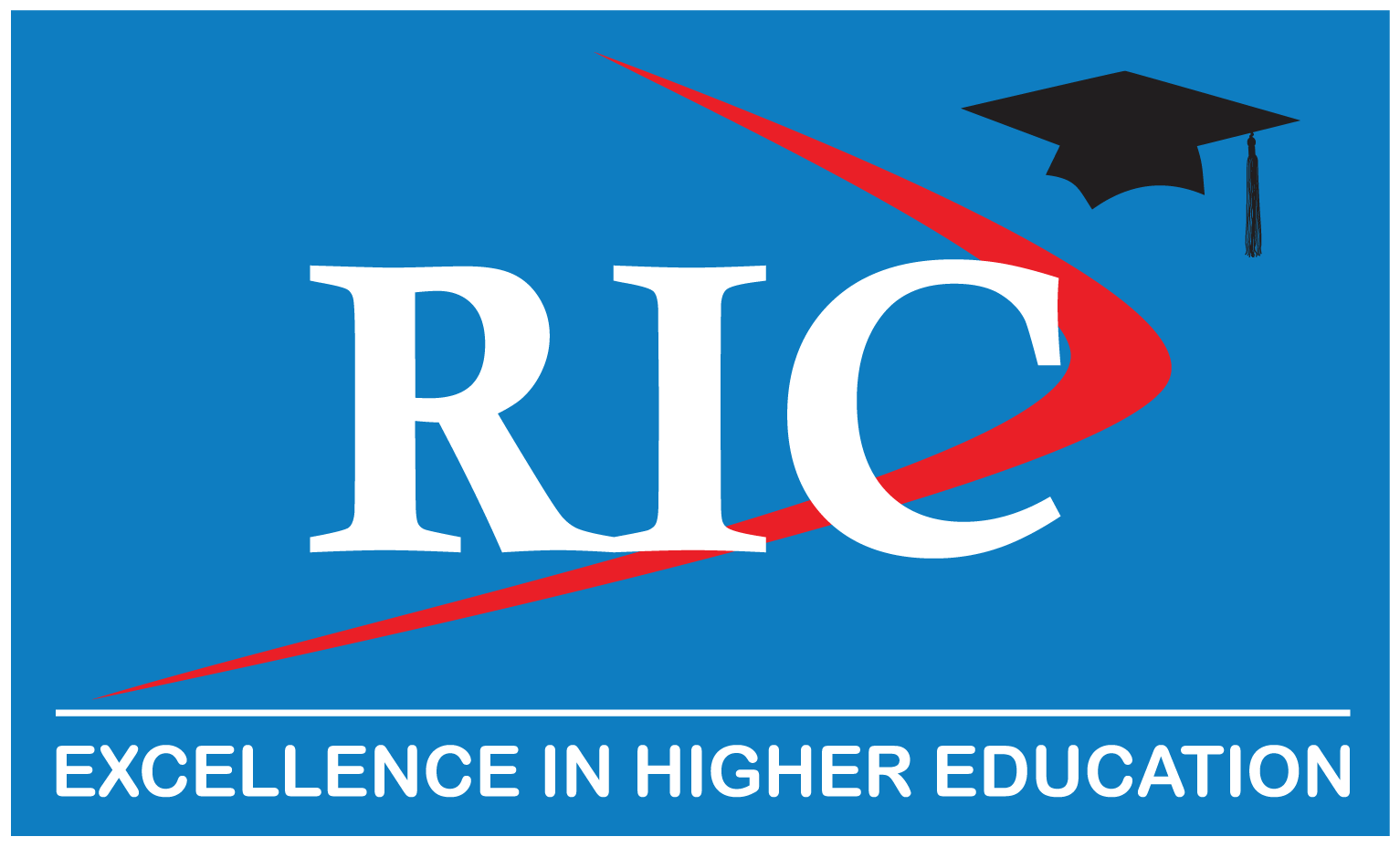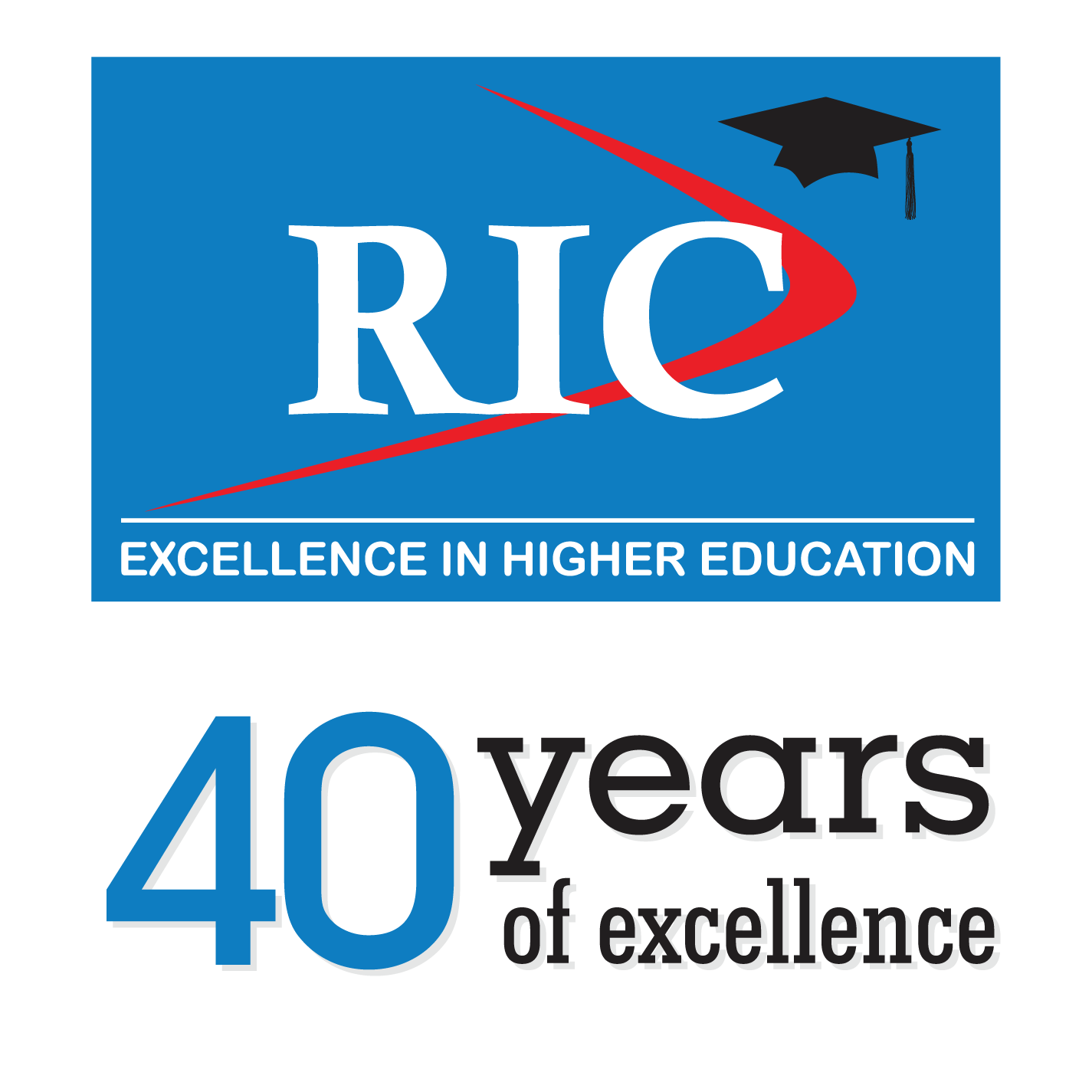My university was more than a place of learning—it was where I learned how to think, not just what to know
By: Tharushi Medawatte
(BSc Psychology 3rd Year Final Semester)
Beyond the Textbooks
When I first enrolled in the University of London BSc Psychology programme at the Royal Institute Campus (RIC), I imagined gaining knowledge about the human mind, behavior, and mental health. What I didn’t fully expect was how deeply the course would challenge not just my understanding of others, but of myself. This degree hasn’t simply prepared me for a future in clinical psychology. It has reshaped the very way I think, question, and respond to the complexities of human experience. Psychology, as I’ve come to learn, isn’t just about textbooks. It is about the living, breathing stories of people, stories that require empathy, courage, and responsibility to engage with fully.
Building Strong Foundations: Core Psychology Modules
From the first year, we laid down the foundations through modules like Developmental Psychology, Biological Psychology, and Social Psychology. These subjects helped me begin to understand the many layers behind human thought and behavior. But what stood out was that we were never encouraged to simply memories theories. Instead, we were pushed to ask difficult questions. Why do we behave the way we do? How does culture influence cognition? What ethical responsibilities do we carry as future psychologists?
Learning from Real Clinical Experience
One experience that really shaped my perspective was learning Clinical Psychology under the guidance of a registered clinical psychologist. These were not dry lectures; they were vivid lessons drawn from real-life experience. Through role-play exercises, where we switched between the roles of practitioner and patient, I learned the subtle yet powerful skills that define clinical work. It wasn’t just about asking diagnostic questions; it was about creating a safe, trusting space where even the most difficult truths could surface. Role-play opened my eyes to the delicate balancing act required in clinical practice, listening deeply while maintaining professional boundaries, offering support while upholding ethical codes.
The Ethical Dimensions of Neuroscience
Neuroscience, too, offered more than I expected. While understanding brain chemistry and neurological processes was fascinating in itself, what really struck me was the ethical dilemma woven into this knowledge. We explored how industries, whether advertising, politics, or criminal justice, sometimes use insights from neuroscience to influence, even manipulate, human behavior. These discussions made me reflect deeply on the power and responsibility tied to psychological knowledge. Psychology isn’t just a science of the mind; it is also a mirror to society’s values and choices.
Real-World Engagement: The Minds in Motion Outreach Project
Perhaps the most transformative part of my degree was participating in the Minds in Motion Outreach Project. These weren’t typical academic excursions. They were profound human encounters that left lasting impressions on my heart and mind.
Inside Sri Lanka’s Mental Health System: A Visit to NIMH
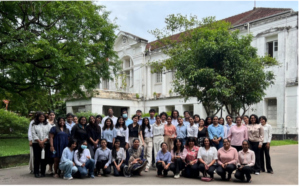
One of the most eye-opening experiences was our visit to the National Institute of Mental Health (NIMH). Having previously interned there, I was familiar with its environment, but going there as part of a group allowed me to engage with it from a fresh perspective. We didn’t just observe, we brought donations of daily essentials and clothing, aiming to make some small difference in the lives of the patients. Watching patients with schizophrenia and bipolar disorder navigate their treatment journeys brought our classroom lessons to life. Yet, there were moments that challenged me ethically. I witnessed a heavy reliance on medication, even in cases like ADHD and depression where psychological therapy could be equally, if not more, beneficial. The regular use of Electroconvulsive Therapy (ECT) particularly unsettled me. It made me think about what changes I would like to see in Sri Lanka’s mental health care system, more emphasis on integrative treatment approaches that balance medication with therapy, more respect for patient agency, and above all, a greater focus on dignity and care.
Understanding Diversity: The National Transgender Network Workshop
Another unforgettable Minds in Motion project was our National Transgender Network Workshop. Engaging in open dialogue with transgender individuals gave me insights that no textbook could provide. Listening to their stories of discrimination, resilience, and self-advocacy, I realized just how important cultural sensitivity is in clinical practice. It isn’t enough to know the DSM criteria; as a psychologist, one must understand each client’s unique life experience and meet them where they are, with empathy, inclusivity, and respect. These conversations made me think carefully about how I would approach therapy with clients from diverse gender backgrounds, ensuring that my practice would always be a safe and affirming space.
Witnessing Resilience: A Children’s Home in Theldeniya
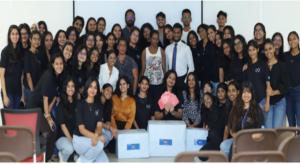 One experience that remains deeply etched in my memory was our visit to a children’s home in Theldeniya. This home sheltered girls who were victims of violence and sexual abuse. The day we spent there was not just an academic exercise; it was a human moment that profoundly affected me. We interacted with the girls, listened to their life stories, and witnessed firsthand the quiet strength they carried despite their traumas. It was impossible not to feel a deep sense of responsibility, to do more, to advocate for spaces like these where victims can find safety, support, and a chance to rebuild their lives. The importance of such homes became clear to me in a way no classroom discussion ever could. These are places where lost childhoods are slowly mended, where psychological healing begins not just through therapy but through community, routine, and care. That day taught me about resilience, not in an abstract, theoretical sense, but as something living and breathing in front of me.
One experience that remains deeply etched in my memory was our visit to a children’s home in Theldeniya. This home sheltered girls who were victims of violence and sexual abuse. The day we spent there was not just an academic exercise; it was a human moment that profoundly affected me. We interacted with the girls, listened to their life stories, and witnessed firsthand the quiet strength they carried despite their traumas. It was impossible not to feel a deep sense of responsibility, to do more, to advocate for spaces like these where victims can find safety, support, and a chance to rebuild their lives. The importance of such homes became clear to me in a way no classroom discussion ever could. These are places where lost childhoods are slowly mended, where psychological healing begins not just through therapy but through community, routine, and care. That day taught me about resilience, not in an abstract, theoretical sense, but as something living and breathing in front of me.
Rehabilitation vs. Retribution: Contrasting Prison Systems
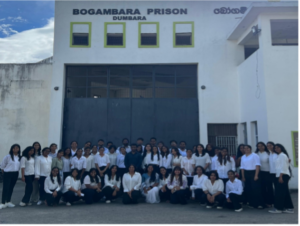 Our Minds in Motion journey also took us to prisons, including Pallekele Open Prison and Bogambara Prison. At Pallekele, I was struck by how occupational psychology was being applied to rehabilitate inmates. Prisoners were involved in farming, carpentry, and small-scale industries, developing skills that would help them earn a living once released. Watching them engage in meaningful work made me realize how crucial it is to equip people with the tools they need to reintegrate into society. This wasn’t just about punishment; it was about giving people a second chance. In contrast, Bogambara Prison offered a starkly different picture, stricter, more traditional correctional methods that didn’t focus as much on rehabilitation. The contrast between these two institutions made me reflect on what kind of psychological frameworks truly support long-term positive change. It made me think about what I would one day like to advocate for: rehabilitation over retribution, growth over punishment.
Our Minds in Motion journey also took us to prisons, including Pallekele Open Prison and Bogambara Prison. At Pallekele, I was struck by how occupational psychology was being applied to rehabilitate inmates. Prisoners were involved in farming, carpentry, and small-scale industries, developing skills that would help them earn a living once released. Watching them engage in meaningful work made me realize how crucial it is to equip people with the tools they need to reintegrate into society. This wasn’t just about punishment; it was about giving people a second chance. In contrast, Bogambara Prison offered a starkly different picture, stricter, more traditional correctional methods that didn’t focus as much on rehabilitation. The contrast between these two institutions made me reflect on what kind of psychological frameworks truly support long-term positive change. It made me think about what I would one day like to advocate for: rehabilitation over retribution, growth over punishment.
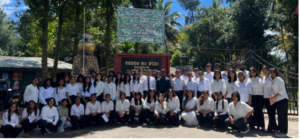
Research with Responsibility: Ethics and Academic Integrity
Throughout all these experiences, ethics and research integrity remained central to everything we did. From our first year, through modules like Research Design and Statistics and Research Skills, we weren’t just taught how to conduct studies. We were taught how to do so with responsibility and care.
My Final Year Research Journey
At present, I am in the proposal phase of my final-year dissertation, where all the ethical and research principles we have been taught are already shaping my approach. My research focuses on exploring the relationship between parent-child open communication and emotional intelligence in young adults in Sri Lanka. Even as I plan this study, I’m mindful that it isn’t just about collecting data, it’s about engaging with people’s real experiences, ensuring that participants feel safe, respected, and understood. In a cultural context where emotional expression within families is often shaped by unspoken norms, I know how important it is to handle each step of the process with care and cultural sensitivity. From drafting the ethics application to preparing participant information sheets, I’m learning firsthand that good research in psychology goes beyond accuracy; it must always prioritize human dignity and trust.
Beyond the Stereotypes: What Psychology Really Teaches
One of the biggest misconceptions about studying psychology is that it’s all about reading people or becoming a therapist. But my BSc Psychology degree, especially one as globally structured as the University of London programme at RIC, has taught me so much more. It has taught me to think like a scientist, a philosopher, and above all, a human being. We learned to dissect journal articles, evaluate conflicting theories, and critically weigh cultural contexts. We debated the ethics of diagnosis, questioned the political dimensions of mental health policy, and reflected on who gets to decide what counts as “normal.” These aren’t just academic skills. They are life skills. They prepare you not just for psychology, but for any field where human understanding, ethical reasoning, and thoughtful decision-making matter.
A Comprehensive Academic Journey: The Module Breakdown
Looking back at the modules that shaped this journey, I see how each one contributed to building the kind of psychologist I hope to become. Biological Psychology, Cognitive Psychology, and Neuroscience grounded me in understanding how the brain and mind interact. Developmental and Social Psychology deepened my awareness of how age, gender, culture, and society shape mental health. Research Design and Statistics honed my skills in conducting ethical, evidence-based studies. Clinical Psychology, Health and Addictive Behaviors, and Forensic Psychology brought me closer to the realities of working with people in crisis, whether in hospitals, prisons, or rehabilitation centers. Philosophy of Psychology challenged me to question the very foundations of the science I’m stepping into. And through it all, every module was connected by one central thread: the commitment to applying knowledge in a way that genuinely helps others.
Career Possibilities: The Diverse Paths Ahead
People often ask, what can you really do with a psychology degree? The answer isn’t simple, because the possibilities are vast. Some of us will become clinical psychologists, others researchers, educators, policymakers, or human resource specialists. But no matter where we go, we carry forward the same core strength: the ability to think critically, act responsibly, and respond humanely. That is something no textbook alone could have given us. It is something that only real-world engagement, thoughtful teaching, and personal reflection can cultivate.
Conclusion: Choosing the Right Psychology Programme
If you are considering a psychology degree in Sri Lanka, or anywhere in the world, my honest advice is this, don’t just look at the module list or the course fees. Ask yourself whether the programme will truly teach you how to think, not just what to think. The University of London BSc Psychology programme at RIC has given me exactly that. It has prepared me not just academically, but intellectually, ethically, and humanely for the challenges of the real world. Because in the end, psychology isn’t just about understanding the mind. It’s about understanding humanity and helping to make it better.
